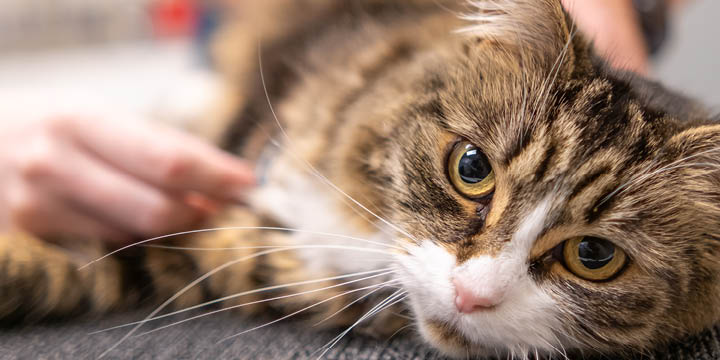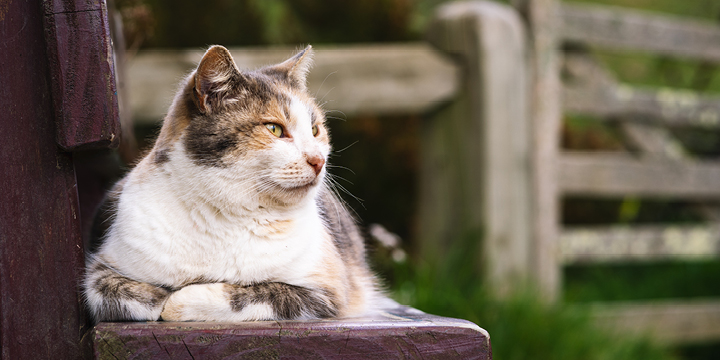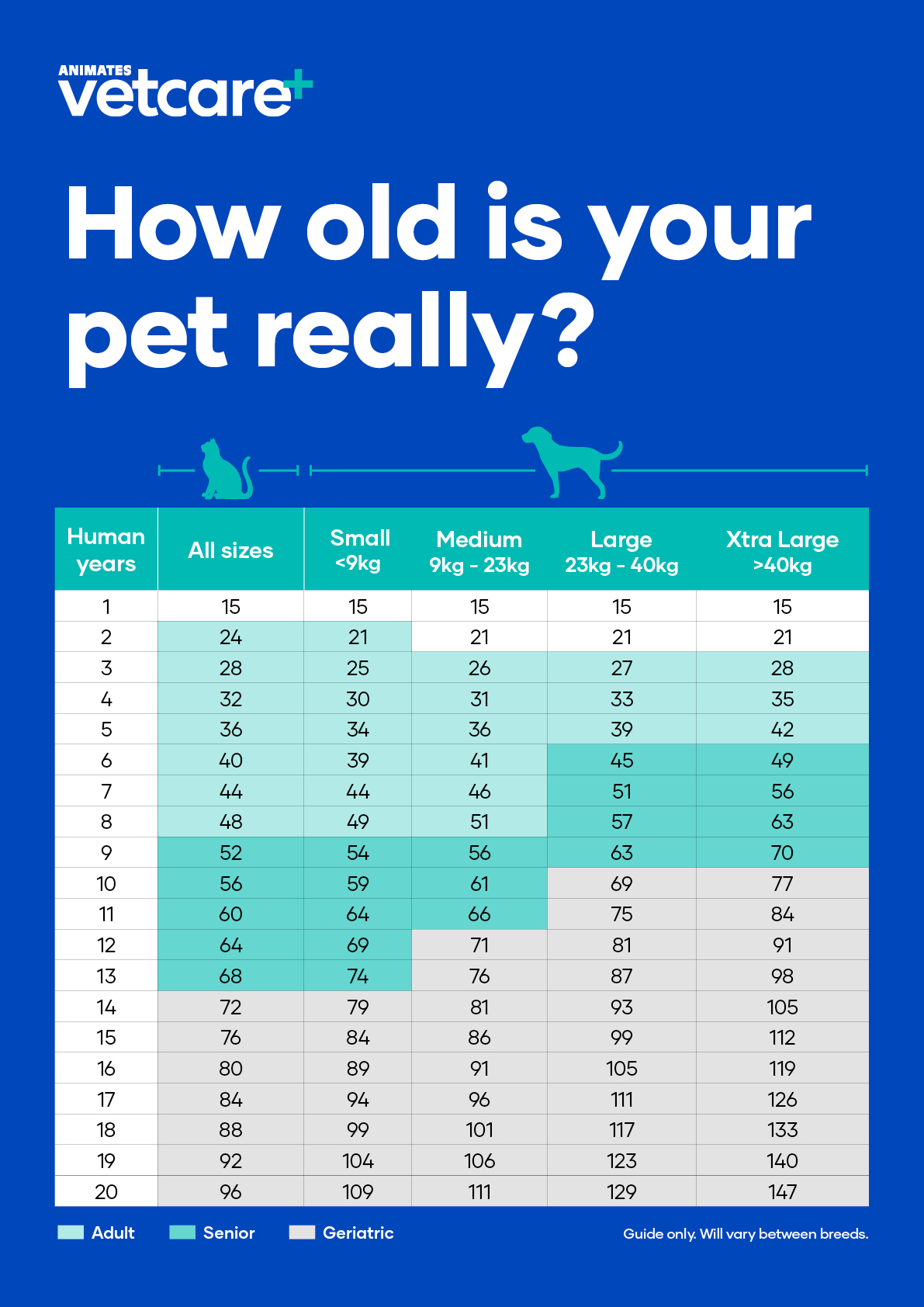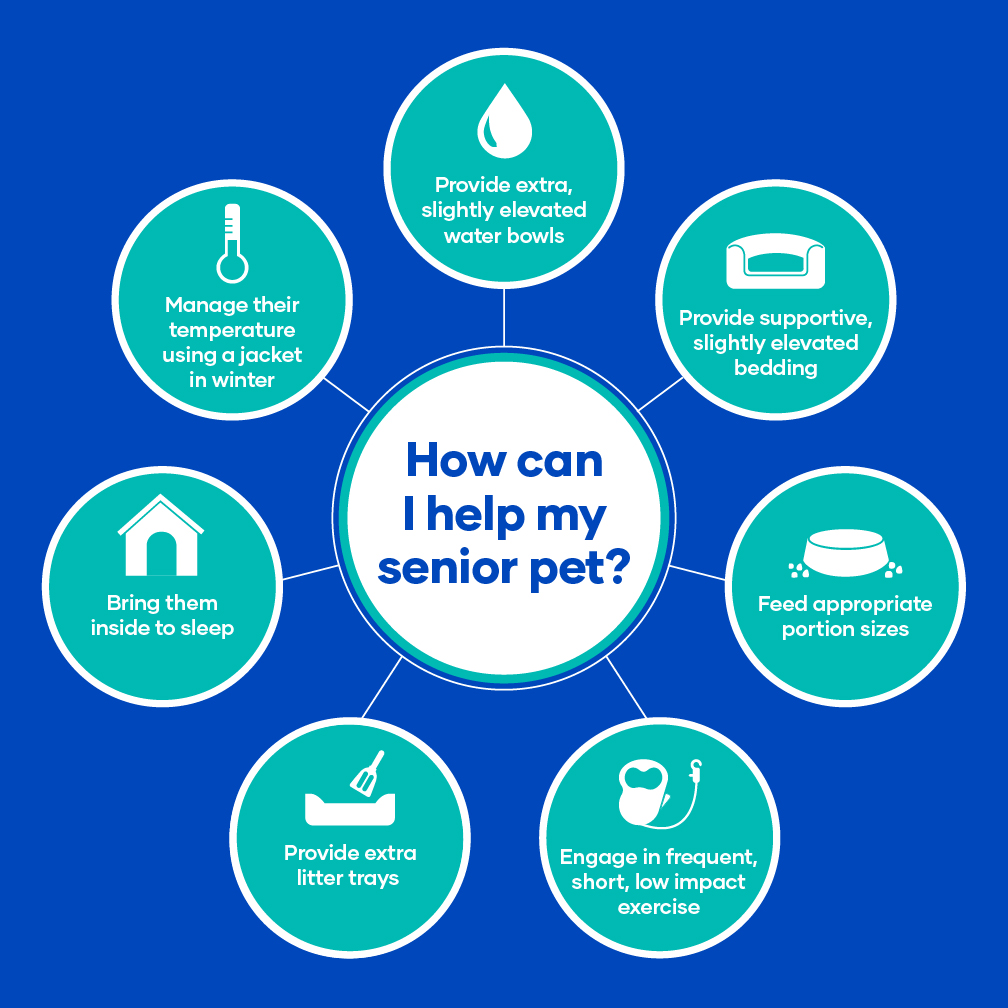
Cat Vaccinations
One of best ways we can protect our cat’s health is by vaccinating against common preventable infectious diseases. Learn more about each of the diseases we vaccinate cats against in New Zealand.

Time flies. When it comes to our pets, they age around seven times faster than us, and before you know it, they have become a senior pet.
Between 6 and 9 years old, pets are considered to be senior and may start to show signs of ageing.

Changes in activity level, appetite, behaviour or difficulty with movement which initially are subtle, can gradually progress and worsen over time.
Visiting your veterinarian at least TWICE yearly allows for early detection of illness or disease. This means treatment or lifestyle changes can be recommended earlier, to help keep your pet healthier and more comfortable for longer.
Some pets are very good at hiding illness. Subtle changes can indicate health issues that need further investigation. Some key signs to look out for include:
If you notice any of these changes in your pet, contact your local Animates Vetcare clinic.
Our senior pets can sometimes struggle to keep up their grooming habits, especially those who have some arthritis or stiffness in their joints. Gently brushing their coat can help with their hygiene, prevent matting, and allows for bonding between you and your pet.

Unlike us humans, pets are unable to tell us where it hurts, what happened, or how they are feeling.
While veterinarians are very good at using physical and behavioural indicators to help identify illness in pets, often further tests are required to provide a diagnosis and guide specific treatment recommendations.
Blood tests are extremely helpful tests that provide information about the function of your pet’s internal organs, their immune system, whether your pet has a certain disease and how that disease is affecting their body. They can identify some health conditions that could be affecting your pet, before they are showing any symptoms. This can lead to early detection of these conditions, allowing your veterinarian to begin treatment earlier and your pet to feel better sooner.
As pets get older and start to experience age related problems, a yearly blood test is recommended. This enables conditions or diseases to be detected in the early stages, allowing earlier intervention or preventative measures to be taken to slow the progress of disease, or stop it developing altogether.
Learn more about diagnostic tests for pets here.
While there can be many health changes for senior pets, being proactive with monitoring your pet and seeking veterinary advice when these changes are noticed will ensure that your pet is kept healthy and comfortable for as long as possible.
If your senior pet could benefit from a check up, contact your local Animates Vetcare clinic to book an appointment.

One of best ways we can protect our cat’s health is by vaccinating against common preventable infectious diseases. Learn more about each of the diseases we vaccinate cats against in New Zealand.